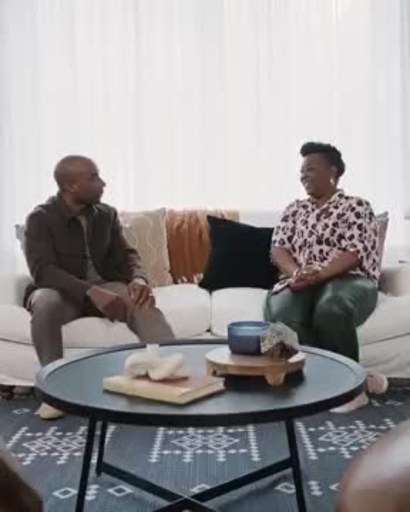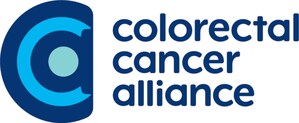Influential radio and TV personality and co-host of "The Breakfast Club" spreads the truth about a preventable cancer for "They Didn't Say" Campaign
WASHINGTON, Nov. 15, 2022 /PRNewswire/ -- The Colorectal Cancer Alliance (Alliance), the nation's leading colorectal cancer advocacy organization, is spotlighting disparities affecting Black Americans with its They Didn't Say campaign. The latest statistics from the American Cancer Society reveal that colorectal cancer is the second leading cause of cancer death in men and women combined in the U.S. Black Americans are about 20% more likely to be diagnosed with colon cancer and 35% more likely to die from it. Compounding this discrepancy is the high degree of stigma surrounding colorectal cancer; dispelling myths with facts about the disease is the cornerstone of this awareness campaign.
"Everyone knows that I'm an advocate for mental health, but with so many friends, family and important figures in our community being diagnosed with colon cancer, I'm driven to continue my partnership with the Colorectal Cancer Alliance to raise awareness and reduce the stigma around screening," said media mogul and TV personality Charlamagne tha God. "This is a preventable cancer and if caught and treated early, there's a 90% survival rate. So, we owe it to our families, our community, and our culture to get screened."
With the recent lowering of the minimum screening age to 45 from 50 by the United States Preventive Services Task Force (USPSTF), more Black Americans are eligible to get screened. Acclaimed saxophonist James Casey relayed this message at The Atlantic's fifth annual People v. Cancer summit, sharing his late-stage colon cancer diagnosis at just 38 years old. Sold-out vinyl sales of Casey's holiday album, A Little Something For Everyone, will support the Alliance's screenings efforts.
To increase testing, the Alliance has earmarked $300,000 in donated funds for colonoscopies to Black Americans in need of financial assistance. These efforts are made possible through the Alliance's partnership with BLKHTLH and Cottonelle and its GoodDownThere campaign. BLKHLTH is a nonprofit organization that seeks to reduce the impact of racism on Black health through education and action. "BLKHLTH is grateful to the Alliance for its work on reducing the impact of colorectal cancer in Black communities, including providing support to Black people seeking colonoscopies through the Cottonelle and BLKHLTH GoodDownThere campaign," says Matthew McCurdy, co-founder and president of BLKHLTH.
Colonoscopy is considered the gold standard for preventing colorectal cancer, but there are several screening options available, including at-home stool tests, which can be purchased at local retailers. The Alliance has trained patient and family support navigators who help individuals assess their risk for colorectal cancer and recommend an appropriate screening option. Individuals can access support by visiting quiz.getscreened.org or calling the helpline at 877-422-2030.
"The Alliance is committed to addressing equity and access in healthcare, with a focus on the Black community," says CEO Michael Sapienza, who founded the organization after his mother died of colorectal cancer in 2009. "We are working hard to break down barriers to colorectal cancer screening that contribute to the disproportionate incidence and mortality rates among the Black community. We believe that everyone deserves access to quality healthcare, regardless of zip code, race, income and insurance status."
- Nearly $1 Million invested in equitable colorectal cancer screening, care and cure initiatives
- Nearly $250,000 given to those in need of financial assistance for colonoscopies
- Over 14,000 free at-home tests for colorectal cancer distributed
- Colorectal cancer is the second leading cause of cancer death in Black Americans.
- One in four Black Americans is diagnosed with colorectal cancer at later stages.
- Colorectal cancer kills more people each year – estimated 52,580 in 2022 – than every type of cancer except lung cancer; it is grossly underfunded compared to other cancers.
- The average lifetime risk of developing colorectal cancer is about one in 23 for men and one in 25 for women.
- Young-onset colorectal cancer continues to be on the rise; rates for people under 55 increased 15% since 2000, there will be a 90% increase in CRC for those under age 35 by 2030, and Black Americans are 30% more likely to develop young-onset colon cancer.
- Nearly one in three eligible Americans have not been screened for colorectal cancer. If caught and treated early, CRC has a 90% survival rate.
The Colorectal Cancer Alliance is a national nonprofit committed to ending colorectal cancer. Working with our nation of passionate allies, we diligently support the needs of patients and families, caregivers, and survivors; eagerly raise awareness of preventive screening; and continually strive to fund critical research. As allies in the struggle, we are fiercely determined to end colorectal cancer within our lifetime. For more information, visit ccalliance.org. Facebook and Instagram: @ColorectalCancerAlliance.
SOURCE Colorectal Cancer Alliance

WANT YOUR COMPANY'S NEWS FEATURED ON PRNEWSWIRE.COM?
Newsrooms &
Influencers
Digital Media
Outlets
Journalists
Opted In






Share this article